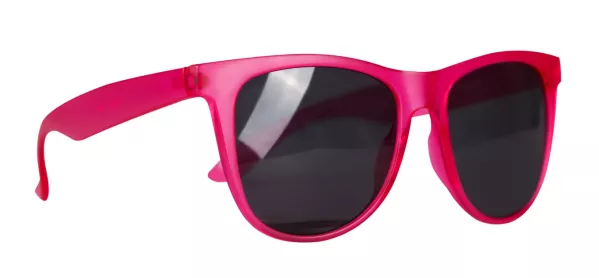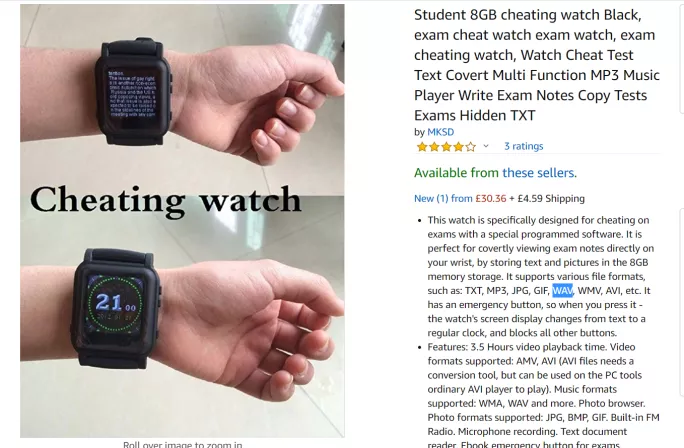Pupils could use sunglasses and watches with smart technology in order to cheat in their exams, a leading expert on malpractice has warned.
Sir John Dunford, who chaired a commission into exam malpractice set up by the Joint Council for Qualifications, said the pace of technological change led to “frightening possibilities” for pupils to cheat.
News: Will exam malpractice commission focus on complexity?
Related: Malpractice report calls for all watches to be banned
Quick read: Teachers spared ban over GCSE malpractice
Speaking at the second annual ethical leadership summit in central London, Sir John said he had seen high-tech sunglasses for sale online that could be used by pupils to send exam questions to someone else via the internet while sitting their papers.
“There are sunglasses with audio - there is a technology now that you’d have a pair of glasses with a camera, and an earpiece that’s so small that it completely disappears inside your ear and no invigilator would spot it,” he said.
“You could then be sitting there in the exam, that’s taking a photograph of your paper, whizzing it off on the internet to somebody who’ll tell you what the answers are, and that can be used in your paper.
“There are frightening possibilities about what these things can do,” he said.
Sir John, whose report into malpractice was published in September advocated banning smartwatches from exam halls, also raised concerns over watches sold online marketed as a means to cheat.
One watch has “8GB” of memory to store notes that could be used to cheat.
“Just read what it says - isn’t that so shocking? The person who wrote that never went to a conference on ethical leadership,” Sir John said.
“This is why we recommended a ban on all watches - because it’s not fair on invigilators to expect them to recognise what’s a smartwatch and what isn’t.
“I think JCQ will get around to this, but I don’t think it will be in time for this summer, so if I was a headteacher now, I would be banning all watches in my school.”
When his report was published, Sir John also highlighted the risk of other technologies that could be used by pupils to bypass regulations, such as microphones hidden in false fingernails or microscopic cameras in lapel badges.
“Young people are always going to be better with technology than old people - or not just old people, us adults,” he said.






